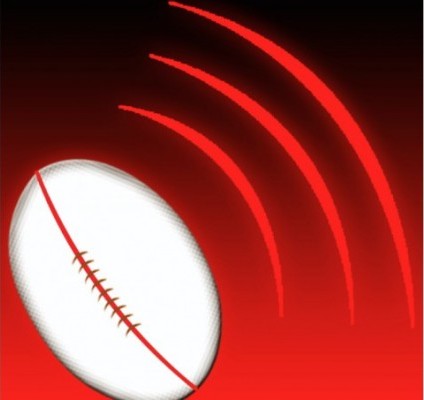Column: Going in a Different Direction
Column: Going in a Different Direction
In this opinion column from Alex Goff, the Goff Rugby Report Editor looks at the dismissal of two prominent USA coaches, and explores whether there's enough, or any, blame to go around.
______________________
Well the big question might be, are the USA national teams in upheaval?
You’ve got to wonder, considering the somewhat surprising firing of Strength & Conditioning Coach David Williams, and the dismissal of Julie McCoy as USA Women’s 7s Coach. Maybe then if you want find more stuff to complain about you could say there’s the weirdness within the men’s 15s program, which started like a house on fire in the ARC, and ended poorly, especially with the loss to Brazil.
But perhaps it’s better to take all of those things as individual issues within a greater whole - a greater whole that includes the fact that the Men’s 7s program is solid and consistent and going fine, and the U20 program is in the World U20 Trophy and JD Stephenson has had the “interim” taken out of his job description.
New USA 15s Coach John Mitchell wrote a column for ESPN in the UK that basically defended his opening salvo as Eagles coach, and he makes some fair points. The most fair is that he had to use 44 players in the five ARC games, and many were new caps, and most were amateurs. As I’ve written before, the USA program had to dig pretty deep to find players for this competition. And as I’ve written many times before, we as American rugby fans seem to be very quick to label an opposing team as a “B-side” or “C-side” when that team is without certain top players, but we won’t do the same for our own team. So with all that in mind, the fact that the Eagles didn’t always perform well, or consistently, isn’t surprising.
Mitchell’s other comments can be summarized as “ah well, you know the players are inexperienced, don’t know the system, and they made mistakes.”
That’s a little harsh, in that I think the same could be said of the coaches and the coaching staff. All of the coaches were getting acquainted with each other, and the athletes. I think the coaches made mistakes, too, and learned a lot (I hope).
What I hope is that the USA Men’s 15s program learned something about how to carry themselves in the public arena. With so many players and coaches new to international rugby life, and with the players still looking for consistent and dependable leadership, we need to have our 15s MNT carry themselves with class and prepare with professionalism. Sometimes that is something people need to learn.
Now, did Dave Williams get thrown under the bus for some poor performances late in the ARC? Maybe. Williams has done a remarkable job surviving in professional rugby coaching. He became the USA S&C Coach while still a player, and managed to hold the job through five USA 15s coaches. Think about that for a moment. When we went from Peter Thorburn to Scott Johnson; Johnson to O’Sullivan; O’Sullivan to Tolkin; Tolkin to Mitchell he could easily have been fired each time. He wasn’t (OK, now he has, but still). That’s still pretty amazing to still be on the job, even after being thrown under the bus by Scott Johnson back in 2008 (Johnson on live TV blamed his team’s fitness, or lack thereof, for some losses). To last that long, and also work with the 7s team through some upheavals and three different coaches, is pretty remarkable.
No one is saying, in fact, that Williams wasn’t doing a good job. No source I’ve talked to said he was doing poorly. The official story is that John Mitchell wanted a new approach to the team’s conditioning; the term in the industry is, “wanted to go in a different direction” and it happens all the time.
As rough as it is for Williams to lose that job, it’s part of professional sports. New head coaches come in, and they change the staff; it’s how things are done. The remarkable part of it all isn’t that the Eagles changed their S&C coach, or that he might have been blamed for new players showing up to camp unfit, but rather that such a change hadn’t happened four times before.
And so we come to Julie McCoy’s unhappy exit from the women’s 7s team. The hiring of McCoy smacked of “let’s get the band back together.” The hope was that McCoy would create a unified culture within the squad that would equal the zeitgeist of her 2009 USA team, when they were a whisker away from being World Champions.
But that was almost seven years ago. Personalities change. The requirements of the game, and the job, change.
You see it in American sports all the time - a coach brought back to rekindle what once was, and it doesn’t take. Why? The people are different. Ah, you say, that’s code for “the players were a problem and they booted McCoy out.” Maybe, and some sources tell me that was indeed the case and that it was one or two players who were ruining the team’s Qi. But I’m kind of in two minds about this. First off, can you fix such a player-coach issue by cutting players? It’s possible, but if it’s not one person, but two or three or four, then pretty soon you start running out of players.
When you look at this, how about you take your own feelings out of it. Take rugby out of it. Do you know any of the players involved? Do you know any of the coaches involved? Take them out of it. Think about baseball, or football, or basketball, hockey, soccer, or even cricket.
Now look at the story as it might be written by anyone: “Rumors were rampant that coach ABC has clashed with players, perhaps XYZ, and QRS. With the 2016 Olympics (or playoffs, or next season) just around the corner and the team not performing especially well, it was clear a change needed to be made.”
That’s the story a million times over. Only occasionally to we as sports fans or observers blame the ownership or general manager for a coaching change. If it’s coach versus player we might take sides, but which side we take makes a difference. It seems that the majority of fans took the side of Todd Clever in last year’s Eagles player-v-coach issue, and when some players seemed displeased with former USA 7s team coach Matt Hawkins, most of us blamed Hawkins. But now, if current 7s coach Mike Friday kicked a player out of the OTC, who would we support?
And often in any sport, the message can be that the coach isn’t a bad person or a bad coach, but either you replace the coach, or you replace half the team, and it’s a lot easier to replace the coach.
McCoy was actually in a very difficult position. She was asked to come in, bring everyone together, and at the same time change how the team was playing. Her approach hadn’t really changed, but the game has quite a bit. If I had a criticism of the team in 2009 it was that it wasn’t physical enough. The skill, desire, and teamwork were there to overcome the lack of size and power, but now? Maybe not. It isn’t really a surprise that McCoy wasn’t able to get the band playing the same tune in such a short time.
Things have changed also in the demands of the job. The USA women’s team is on a World Series circuit now (they weren’t in 2009), and training full time. Julie McCoy is a respect surgeon with patients and responsibilities … a day job. Remember when Al Caravelli coached the men’s 7s team and tried to balance a day job with full-time coaching? Something had to give.
Having a coach who has another job is from the amateur days, and when you’re asking the players to put everything into this program, it doesn’t work.
I asked USA HP Director Alex Magleby if he felt a sense of urgency with the Olympics just a few months away. He said, yes, very much so. I asked him where he thought the USA Women’s 7s Program was, and he said he didn’t really think they had a Program with a capital P. New Zealand, Australia, and Canada have developed programs, with depth of players, and a cohesive development program, and a cohesive coaching program.
“We have failed to do that,” said Magleby, “but we’re not far off.”
So if there’s blame to be sent to USA Rugby, it’s that they’ve created more of a program with the men’s national teams, complete with development teams, development academies, and a decent plan on player usage. But they don’t have the same thing installed for the women.
It is a shame that a coach is hired and then fired. But just because the hiring didn’t work out, doesn’t mean the hirers were clowns, or the coach was evil, or the players entitled. Sometimes, it just doesn’t work. If you’re a fan of other sports, think about how Pete Carroll or Bill Belichick were unsuccessful NFL coaches before they found the right formula of management, city, and players. Imagine old-school John Wooden, or gruff Vince Lombardi, or unflinching Earl Weaver coming back to coach today. How do you think they would do? Maybe they would be great (Gordon Tietjens has certainly been able to adjust with the times), but maybe they wouldn’t, because it’s not the right mix.
If Alex Magleby and USA Rugby CEO Nigel Melville were wrong to get rid of Ric Suggitt and bring in Julie McCoy, at least they made a move to fix it relatively early. At least they didn’t wait until three weeks before the Olympics to decide something needed to be done.
Richie Walker comes in now, and seems to be a coach the players like (that’s not a bad thing, by the way). He’s familiar enough with the program and the players to get them ready for Atlanta, and he has three World Series tournaments in which to get them playing better. He has just over four months before the Olympics kick off.
Word is that the players, during this tough time, have rallied around each other and rallied around the task at hand. In the end, that is what coaches, popular and unpopular alike, want.










